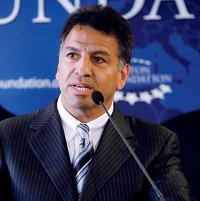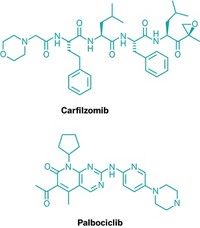Advertisement
Grab your lab coat. Let's get started
Welcome!
Welcome!
Create an account below to get 6 C&EN articles per month, receive newsletters and more - all free.
It seems this is your first time logging in online. Please enter the following information to continue.
As an ACS member you automatically get access to this site. All we need is few more details to create your reading experience.
Not you? Sign in with a different account.
Not you? Sign in with a different account.
ERROR 1
ERROR 1
ERROR 2
ERROR 2
ERROR 2
ERROR 2
ERROR 2
Password and Confirm password must match.
If you have an ACS member number, please enter it here so we can link this account to your membership. (optional)
ERROR 2
ACS values your privacy. By submitting your information, you are gaining access to C&EN and subscribing to our weekly newsletter. We use the information you provide to make your reading experience better, and we will never sell your data to third party members.
Business
Pfizer decides not to split
Drug firm calculates that the sum of its parts beats operating as two separate companies
by Ann M. Thayer
September 28, 2016
| A version of this story appeared in
Volume 94, Issue 39
After keeping investors hanging for years, Pfizer has decided not to split into two companies. Instead, it will remain whole as one of the world’s largest drug firms.
Calling the company’s current structure the best to deliver results and drive value, CEO Ian Read said Pfizer’s distinct businesses—Innovative Health and Essential Health—will continue to operate as separately managed units. Reaction to the news was an immediate 2% drop in the company’s stock price.
Both businesses have been performing well, posting combined first-half 2016 sales growth of 15%. With annual sales approaching $28 billion, Innovative Health focuses on R&D to create new drugs. Essential Health is on track to have about $24 billion in sales of older and generic drugs.
To build the generics side, Pfizer acquired Hospira in 2015 for $17 billion. Pfizer says its innovative drugs unit will be bolstered by new product launches, the $5 billion purchase of boron-based drug firm Anacor Pharmaceuticals in May, and the just-completed $14 billion acquisition of Medivation, which brought the blockbuster prostate cancer drug Xtandi.
However, since first considering a split, Pfizer failed at a $119 billion takeover of AstraZeneca in 2014 and gave up on acquiring Allergan for $160 billion this year. It also offloaded its nutrition, drug dosage-form, and animal health businesses.
Pfizer will still track the financial information “necessary to preserve our option to split our businesses should factors materially change,” Read said.
The cost of maintaining this reporting is minimal compared with the roughly $600 million Pfizer spent on planning a separation and the even greater amount that an actual split would entail, pointed out Evercore ISI stock analyst Mark Schoenebaum in a recent note to clients.




Join the conversation
Contact the reporter
Submit a Letter to the Editor for publication
Engage with us on Twitter